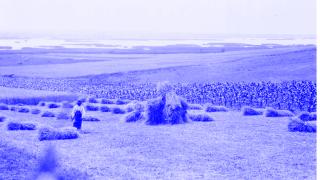
Subject area
Resource Use and Land Development
The question of resource use plays an important role in the history of Eastern Europe, encompassing agricultural and hydrologic cultivation as well as the infrastructural development of landscapes since Late Antiquity. The High Middle Ages witnessed particularly significant expansion of agriculturally useful land to produce more grain, first in Central and then in East-Central Europe, through the clearing of forests and draining of swamps. Dams were built to power water mills.
This land development had just as many diverse social and ecological consequences as the regulation of hunting in the remaining forests, which ever more severely restricted the local population’s access to wild animals as a source of meat and fur. Hunting transformed from a subsistence strategy into the sport and hobby of a privileged upper class, whose hunting habits often hindered the agrarian use of cultural landscape.
Resource use also comprises the exploitation of raw materials, such as construction material (wood, stone), salt or metal ores, and controlling their access, knowledge of how to process them, and their distribution. Different forms of recycling are also evident. These complex processes are being researched by interdisciplinary teams bringing together the results of archaeological, historical, onomastic, topographic and cultural-anthropological investigations.
Research topics
East-Central Europe’s Hunting History
Hunting is one of mankind’s oldest activities. It opens up a broad social panorama. Yet despite this, historiography has so far assigned it only a minor role. This research project therefore examines the continuity of forms of representation and legitimation of sovereignty as well as processes of transfer and interconnection in culture and academia beyond the turning point of World War I.
Industrial water pollution in the late Russian Empire
Industrial pollution is a complex phenomenon: consisting of toxic poisonous matter, it at the same time represents a social compromise on the level of substances in the environment which is inappropriate. This project aims to investigate how the concept of pollution was formed in late imperial Russia and how it influenced the emergence of systemic environmental policies.
Land Development
In the High Middle Ages, land development extensively reshaped the settlement and cultural landscape of East-Central Europe. The process known as »cerealisation« in particular had many social and ecological consequences, which this project investigates by examining selected examples in an interdisciplinary manner.
Metal Recycling
The control and requisite knowledge to accessing and processing metals comprise more than technical aspects alone: they also encompass matters of social organisation and power distribution in time and space.
The relocation of central places in the early Middle Ages
In the High Middle Ages, new castles were built in the vicinity of older, abandoned fortifications. The aim of this research is to find out why the old castles fell into ruin and new ones were built in the neighbourhood.
